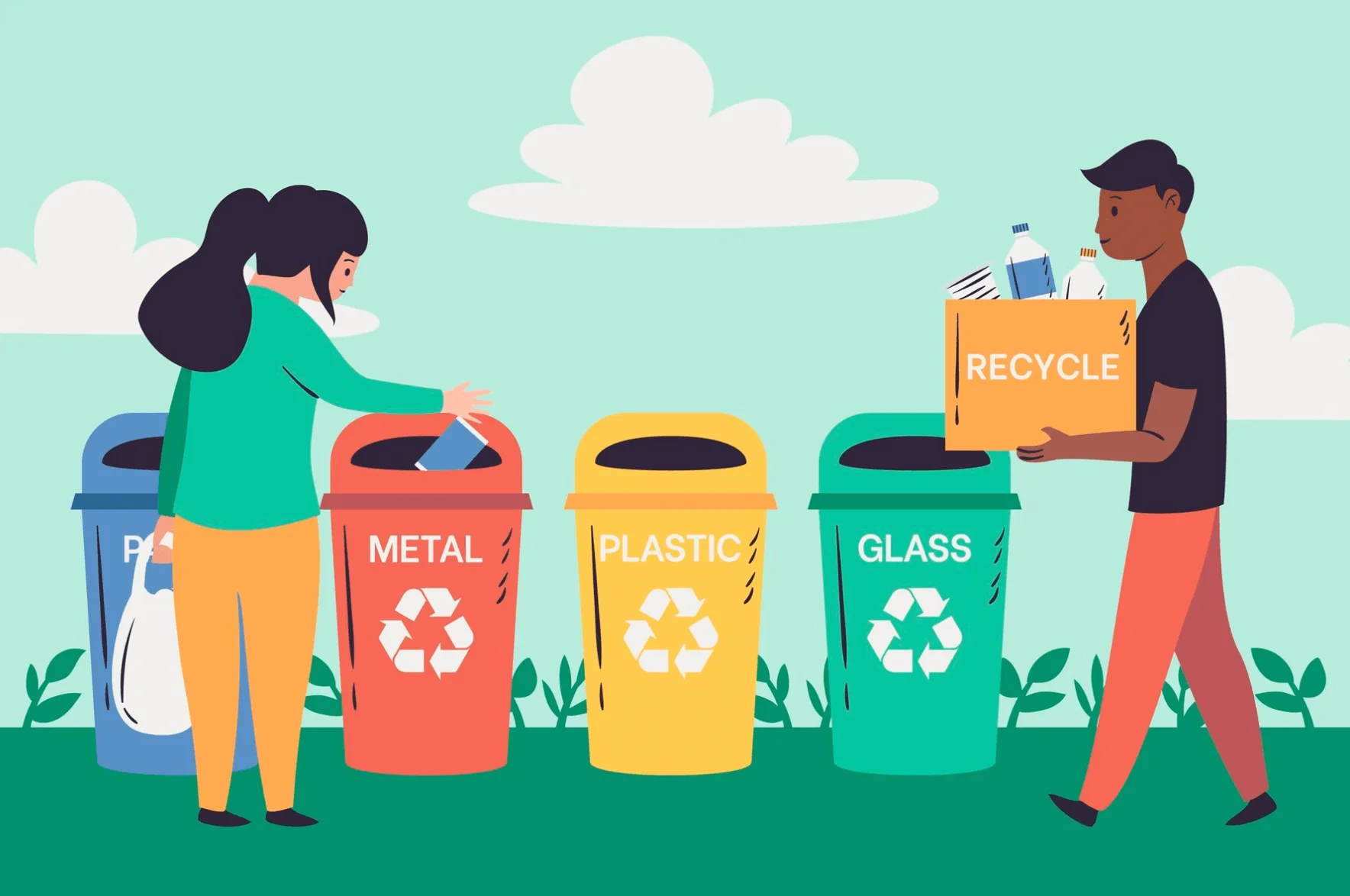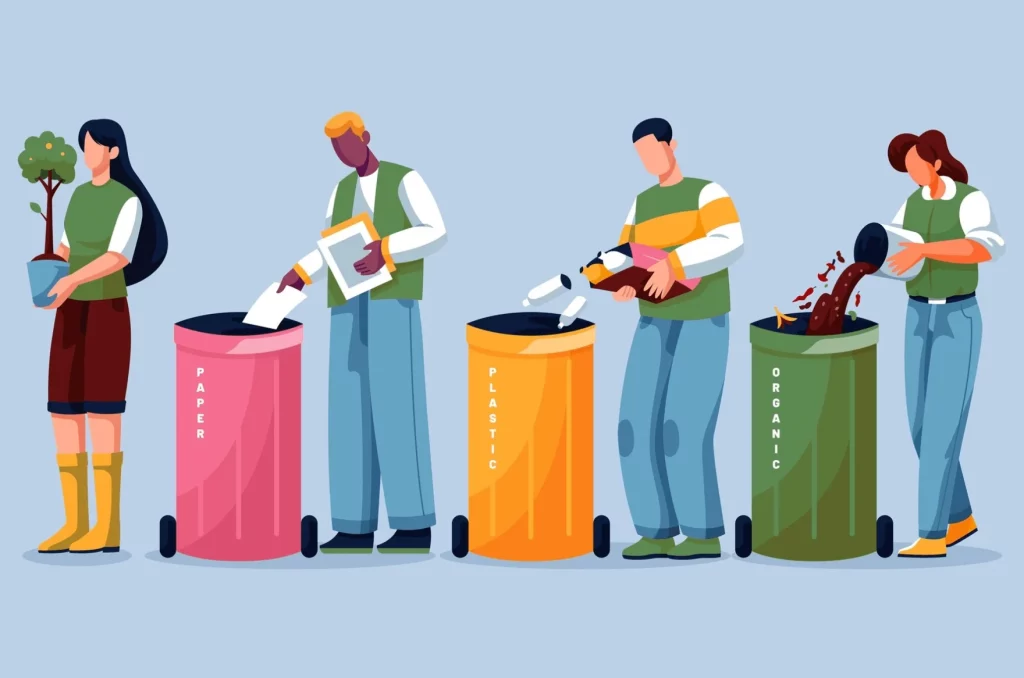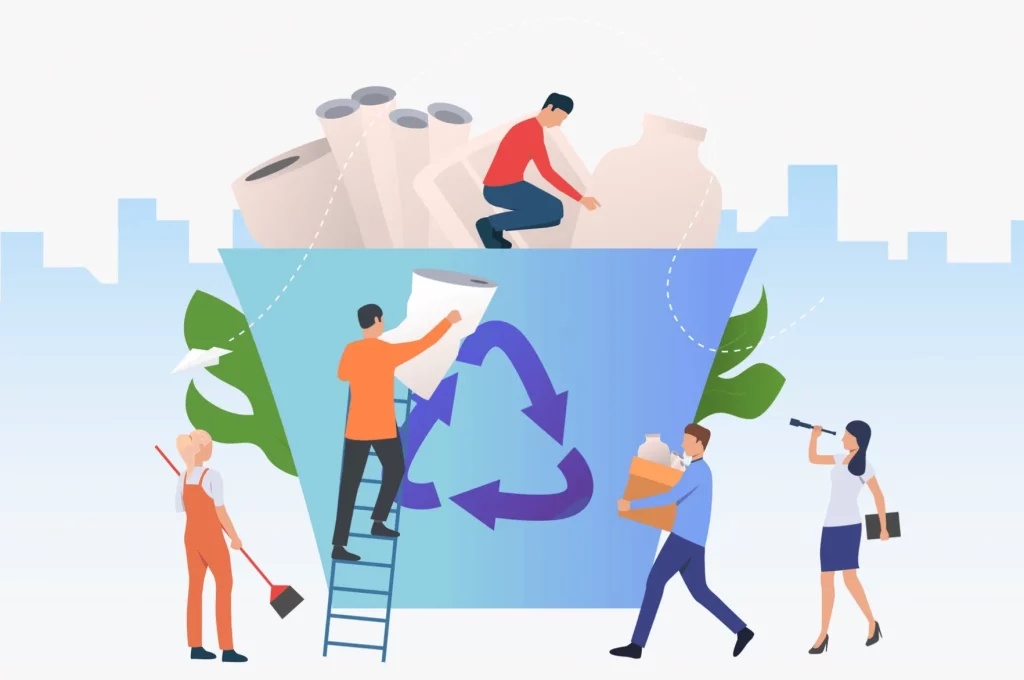Source sorting of organic waste: update as of January 1, 2024

Since January 1, 2024, source sorting of organic waste has become mandatory in France. Who is affected? How to implement this source sorting, and what are the concrete advantages of this model? We explain everything.
- Understanding source sorting of organic waste
- Advantages and challenges of source sorting organic waste
- Source sorting: how to implement effective practice
- Source sorting: for whom?
- Source sorting: regulations
Understanding source sorting of organic waste
What is source sorting of organic waste?
Source sorting of organic waste involves separating organic waste at its origin, thus distinguishing it from other types of waste. This practice aims to simplify waste management by promoting recycling, composting, or conversion into renewable energy. By involving all stakeholders, it is part of a sustainable approach to resource management.
Which organic wastes need to be treated?
Source sorting has been mandatory since January 1, 2024. To be effective, you must know the different organic wastes that require special management.
- Food waste: Includes peelings, leftover meals, and unconsumed food. Careful sorting reduces waste.
- Green waste: Includes grass clippings, leaves, branches, forming an ideal basis for composting.
- Paper and cardboard: Leading in recycling, including newspapers, packaging, and boxes. A simple gesture with significant impacts.
- Packaging waste: Plastics, glass, metal, require rigorous separation. Recycling them is an essential step.
- Electronic waste: Includes obsolete appliances and batteries. Their treatment requires a specialized approach to avoid pollution.
- Hazardous waste: Toxic products like paints, requiring responsible management to prevent any harmful impact.
Nomadia accompanies you in setting up your recycling routes!
Advantages and challenges of source sorting of organic waste
- Significant waste reduction
Source sorting of organic waste allows for a significant decrease in overall waste production. A proactive approach that limits environmental impact and promotes responsible resource management.
- Valorization of organic waste: a valuable resource
Opting for source sorting means valorizing organic waste. Transformed into quality compost or renewable energy, these organic wastes become a precious resource in the transition to a circular economy.
- Increased regulatory compliance
Source sorting meets current environmental standards. This preventive approach reinforces their image as responsible actors, avoiding potential sanctions.
- Optimization of waste-related costs
Source sorting solutions offer more efficient waste management, thus reducing costs related to their disposal. A reduction in the volume of non-recyclable waste translates into substantial savings, improving profitability.
- Awareness of involved stakeholders
Source sorting becomes an opportunity to raise awareness among employees, residents, and other stakeholders about environmental issues. Encouraging collective adherence to eco-responsible practices becomes a significant advantage.
Yes, source sorting offers many advantages for your business. But how do you succeed in implementing it?

Source sorting: how to implement effective practice
Discover the essential steps to implement effective sorting.
- Employee awareness
Start by raising awareness among your team about source sorting. Interactive training sessions promote optimal understanding of sorting practices, laying the foundation for successful adoption.
- Smart choice of infrastructure
Invest in suitable infrastructure. Opt for ergonomic and well-identified sorting bins. Careful selection of these equipment greatly facilitates the sorting process, reducing the risk of errors.
- Customization of sorting plans
Each company or municipality has specific needs. Customize your sorting plans to align with your requirements and seamlessly integrate source sorting into your daily operations.
- Integration of innovative technologies
Explore modern technological solutions to optimize source sorting. From smart sensors to user-friendly applications, these tools reduce margins of error and increase the overall efficiency of the process.
- Regular monitoring and necessary adjustments
Source sorting evolves over time. Make sure to regularly monitor performance and make proactive adjustments to ensure the sustainability of your sorting practices.
Nomadia accompanies you in implementing source sorting.
Source sorting: for whom?
Businesses
Businesses, whether small, medium, or large, must implement source sorting. By adopting this approach, they reduce their carbon footprint and demonstrate their commitment to sustainable development. Effective waste management also contributes to improving their brand image, meeting the increasing expectations of environmentally conscious consumers.
Municipalities
By establishing favorable policies, they encourage citizen participation in environmentally friendly practices. Implementing awareness programs contributes to more efficient selective collection, thus reducing costs related to waste management.
Source sorting is not limited to a simple environmental obligation but represents an opportunity for businesses and municipalities to engage in a virtuous dynamic.

Source sorting: regulations
A legal requirement
Source sorting is no longer just an ethical choice but a legal requirement, since January 1, 2024. Companies and municipalities are subject to strict standards for waste management. Adhering to these regulations becomes imperative, not only to avoid sanctions but also to actively contribute to the preservation of our environment.
Towards a circular economy
Current regulations are part of a circular economy perspective. Source sorting goes hand in hand with waste valorization, reduction of greenhouse gas emissions, and preservation of natural resources. An opportunity for companies to adopt more sustainable practices, thus improving their image while complying with new environmental standards.
Clear directives
Authorities impose specific guidelines on how to sort waste at the source. Companies must implement suitable devices, inform, and raise awareness among their staff. A proactive approach ensures quick and effective compliance without compromising daily activities.
Source sorting, far from being a constraint, proves to be a strategic opportunity. Complying with current regulations is the first step towards responsible waste management, but it is also a way to strengthen the position of your company or municipality as a committed actor in the preservation of our planet.
